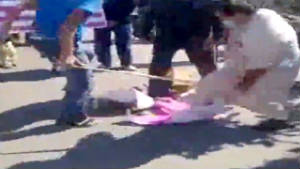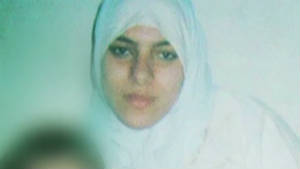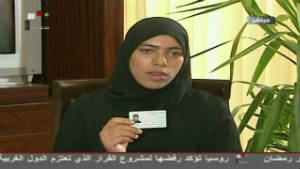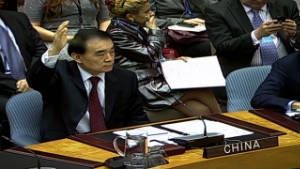The United States called for Syrian President Bashar al-Assad to "step down now" following the assassination of a prominent Kurdish opposition figure amid continuing violence in the nation.
Assad should resign "before taking his country farther down this very dangerous path," White House spokesman Jay Carney said in a statement Friday.
"It is also notable that these acts of violence took place just three days after the U.N. Security Council failed to pass a resolution calling for international human rights monitors in Syria in face of brutal repression," he said, referring to a resolution vetoed by Russia and China.
Kurdish opposition leader Mashaal Tammo, a spokesman for the Kurdish Future Party and a member of the newly formed Syria National Council, was shot dead in an attack at a private residence in the northeastern city of Qamishli, one of the cities where protesters gathered Friday.
The state-run Syrian Arab News Agency (SANA) reported that he had been killed by "an armed terrorist group." Local activists said he had been slain by members of a pro-government militia.
Another opposition leader Riad Saif was subjected to a "vicious and unprovoked assault," the White House statement said.
Avaaz said Tammo was meeting with activists at the time and that the attackers were members of the Shabiha, the pro-government militia.
"The Kurdish people are very angry as a result," an activist told Avaaz.
The LCC said in a statement that Tammo survived another assassination attempt in August.
The group also described the assault on Saif, who was beaten in the Damascus neighborhood of Medan, as a "dangerous development" and said the Syrian government was taking advantage of the "lax attitude" of the international community to repress political opponents by violent means.
Protesters in the western city of Homs and Hama and in the Banias area demonstrated Friday against the death of Tammo, the LCC said. Formerly a member of parliament, he helped establish the Kurdish Future Party in 2005, SANA reported.
Kurds live in a contiguous area that spreads across Iraq, Iran, Syria and Turkey. Kurdish rebels have fought for an independent state.
Human Rights Watch, which notes that the Kurds are the largest non-Arab ethnic minority in Syria, has estimated that Kurds make up about 10% of Syria's population. The Syrian government, viewing Kurdish identity as a threat, has suppressed the group's political and cultural rights.
Anti-government demonstrations have raged in Syria for nearly seven months, and the al-Assad regime has launched a fierce crackdown on protesters. The death toll has exceeded 3,000, the observatory said. Most of those killed have been civilian protesters and others have been security forces.
Activists stage nationwide protests with a specific theme every Friday after Muslim prayers.
Earlier this week, Russia and China vetoed a U.N. Security Council draft resolution condemning Syrian authorities for using violence against anti-government demonstrators.
The two nations argued the proposed resolution would lead to military intervention similar to the NATO operation to protect anti-government protesters in Libya.






No comments:
Post a Comment